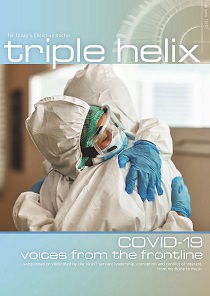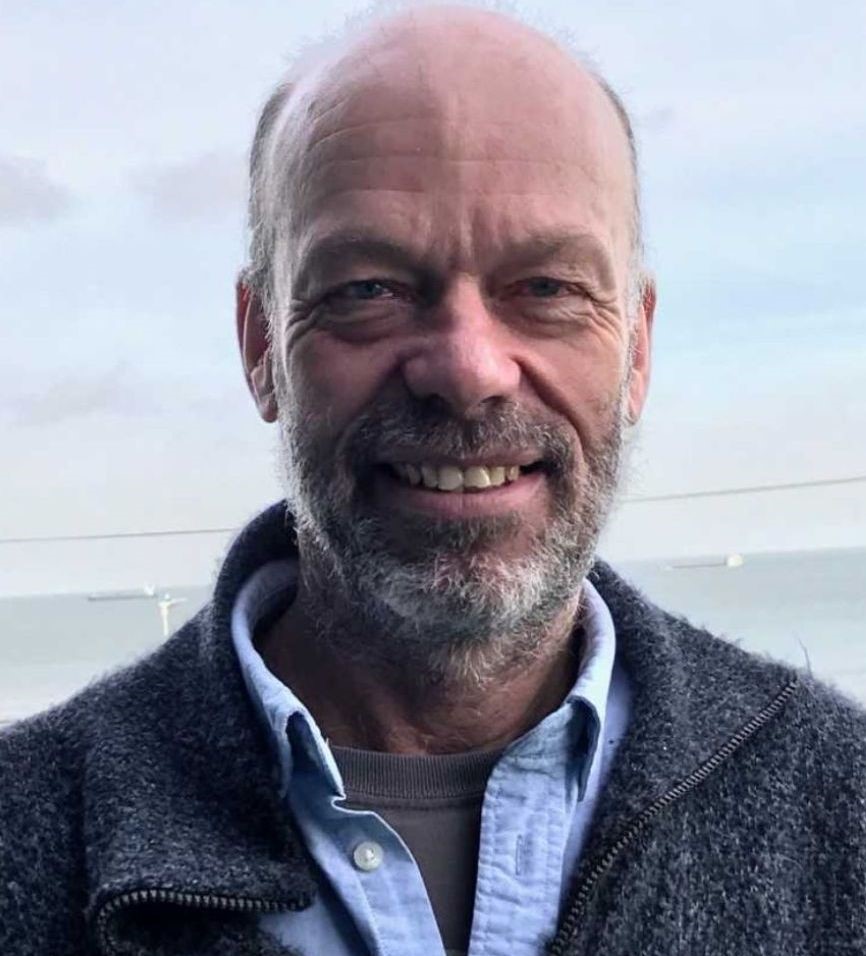The effect on our minds has been almost as severe. The mental health tsunami predicted by the Royal College of Psychiatrists is already a reality in general practice. Easing lockdown over the summer has been vital not only for the nation's finances but also for our equanimity. Save the NHS by keeping your distance has been replaced by spend money to save business. But the price has been high, with herd immunity binned early on in favour of disease avoidance, preserving life as well as livelihoods.
De rigeur on public transport and whilst shopping, masks may soon become mandatory whenever we leave the house. Social distancing and limits on meeting in groups have transformed our natural social lives, making them feel not only alien but dangerous. Ubiquitous face masks shout of danger, and barred from normal human interaction, 'keep out of my air-space' is the unspoken rule. 'Corona-fear', which rose rapidly and subsided more slowly is set to rise again. Society risks being vanquished by a virus.
Fear not
But not in my consulting room. The ubiquitous scriptural command do not fear (mentioned 365 times in the Bible), allied to do not be anxious about anything (Philippians 4:6a) sounds like a tall order when patients are faced with life's usual challenges, let alone a pandemic. Paul's words were penned in prison, his life menaced by man. Yet, while our enemy may be invisible, his advice remains spot-on. 'Do not be anxious about anything, but in every situation, by prayer and petition, with thanksgiving, present your requests to God. And the peace of God, which transcends all understanding, will guard your hearts and your minds.' (Philippians 4:6-7) We have the antidote to Corona-fear. Faithful prayer, even through the valley of the shadow of death, [1] and peace will be yours.The antidote is all very well; but how to get the message for the moment across? Entering general practice, I had one major advantage. Returning spiritually dry from medical mission in the mid-nineties, with faith intact but responsibility for sharing it unkindled, I not only lacked intention but know-how. God dealt with the first through the Alpha Course. [2] I was stunned to realise that the imperative to tell others about Christ had somehow passed me by. So, I tested the water in what was to be my new mission field as a trainee doctor. I made a deal with the Lord; give me a partnership in a poor seaside town. It took him three weeks to answer that prayer and tell me to 'go for it'.
Intentionality in situ, my know-how grew on-the-job. Heroin addicts were my introduction to medical outreach. The cycle they commonly went through was as follows: leave prison, spend their £46 allowance on drugs, rob a supermarket badly, get re-arrested. The addicts were hopeless and Western medicine helpless. So it was that I set up Alpha and drug addict evenings as a new approach to break the cycle. One man was saved after nine prison stretches, becoming our church bass guitarist. Almost all received the message kindly, though many would reject it and die young. With time unpredictably short, I moved on to alcoholics, the depressed, anxious and angry; anyone with a spiritual angle to their illness. A church mission to Kent in 1999 also proved pivotal for me. Joining a team in Chatham, I learnt to share my faith with people outside of the practice setting. Further UK missions led to doors opening for evangelism in rural Maasailand, Kenya and the genesis of Evangelistic Medical Missions Abroad. [3] EMMA enables a range of health care professionals to share their skills and faith in short-term mission settings. Indeed, our largest ever team of 22 returned from Sierra Leone just prior to lockdown.
Training reduces fear
Kick-started by Nicky Gumbel's Alpha course, my journey has stemmed mostly from what I've learnt in the field, boosted by some formal training en route. Theory and practice may be our staple diet as clinicians, yet Christian health professionals are often reluctant to apply this tested formula to spiritual health. 'I'm not trained, it's fraught with danger, not my job...' Pre-Alpha, this was my position. Now, with eyes opened and in a changed world, I can recommend some training to put your minds at rest and deliver on what our Christian DNA tells us will hugely benefit our patients and colleagues. I'll wager it becomes the most exciting thing you'll ever do at work.Here's what CMF offers: 'Saline Solution' [4] originated in America in the nineties. Tried and tested, CMF were early adopters, appreciating the goal of producing appropriately salty Christian medics. With 28 UK trainers, 30 courses took place in just the last five years. Currently flourishing on-line, Saline has been Zoomed abroad most recently to Romania and South Korea. I co-led a Saline course in my practice 15 years ago and was delighted that 40 health professionals from East Kent really valued the gentle teaching. Making the case for science and faith, delegates learn to take a spiritual history and drop in faith flags, leading to the gospel. Formally set-up, it allows for personal stories with detailed feedback another strength. Mixed courses (for diverse health professionals) and a range of timings add flexibility. If you have never undergone any outreach training, Saline is an excellent place to begin.
Saline graduates who fancy something more in-depth and academic may opt next for CMF's in-house 'Confident Christianity'. [5] Honed since 1989, with input from both past and present CMF CEOs, it's raison d'etre is that faith-sharing can be a struggle and that confidence is required to present the gospel accurately. Majoring on the 5 Rs (check them out), communications skills and dialogue, it leans heavily on Paul's strategy in Athens. [6] The course is currently under reconstruction to bring it up to date. Recommended whole-heartedly.
Unashamedly, the third option is mine. 'Outreach in Outpatients' was trialled last year with CMF's Evangelism and Apologetics Track. [7] It is a medical version of my established evangelism training course for churches. The course is stuffed full of stories from general practice and mission. It is highly interactive and though aimed at medics, it is suitable for all Christian health professionals.
It is based around a series of questions. WHY reach out at work in the face of considerable personal and professional barriers? WHAT are the General Medical Council and Nursing and Midwifery Council regulations? WHAT is the Gospel and WHEN and HOW can we best share it? Emphasising stories, we practise giving testimony (I share mine at least weekly at work). The course naturally overlaps with the previous two, eg emphasising reason and debate, but uniquely stresses the need to take risks for the gospel and finishes with tips from the mission field. The course is stuffed full of stories from general practice and mission, is highly inter-active and though aimed at medics, is suitable for all Christian health professionals.
Vindicated, not afraid
Three options, but one goal: a workforce on fire for Christ and enabled to share his Good News. But why now? For months I resisted writing this article. Exhausted health workers have enough on their plate; there seemed no need for an additional burden to be laid upon them! However, as Corona smoulders with mini-lockdowns and second or even third waves appearing inevitable, the timing seems right. COVID-19 has awakened a spiritual hunger in the nation. Alpha has tripled on-line. Virtual church services are extending their reach beyond their usual congregations. More people admit to praying now than ever before. On YouTube The UK Blessing worship song [8] has had nearly four million views since it premiered on 3 May 2020.The wind is blowing in our direction. Vanquished by a virus? Most certainly not! A desperate society is open to Jesus. This pandemic vindicates Christian outreach. Let's go for it!
Richard Scott is a GP-evangelist in Margate and CMF's Evangelism Associate
































